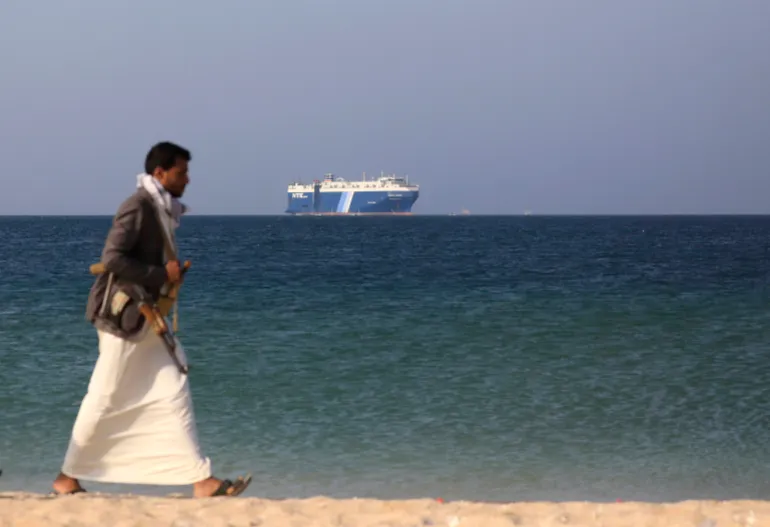The United States has announced the launch of a multinational force to protect trade in the Red Sea after a series of attacks by Yemen’s Houthi rebels forced several shipping companies to suspend operations.
U.S Defence Secretary, Lloyd Austin said that the Red Sea is a critical waterway that has been essential to freedom of navigation and a major commercial corridor that facilitates international trade.
However, the recent escalation in “reckless Houthi attacks originating from Yemen threatens the free flow of commerce, endangers innocent mariners, and violates international law.”
Lloyd said that it is an international challenge that demands collective action as he announced the establishment of Operation Prosperity Guardian, “an important new multinational security initiative under the umbrella of the Combined Maritime Forces and the leadership of its Task Force 153, which focuses on security in the Red Sea.”
“Countries that seek to uphold the foundational principle of freedom of navigation must come together to tackle the challenge posed by this non-state actor launching ballistic missiles and uncrewed aerial vehicles (UAVs) at merchant vessels from many nations lawfully transiting international waters.”
Lloyd Austin
Operation Prosperity Guardian comprises the United Kingdom, Bahrain, Canada, France, Italy, Netherlands, Norway, Seychelles and Spain.
They are to “jointly address security challenges in the southern Red Sea and the Gulf of Aden, with the goal of ensuring freedom of navigation for all countries and bolstering regional security and prosperity.”
The announcement comes after the US and UK navies said over the weekend that their destroyers had shot down a total of 15 drones in the waterway.
The Iran-backed Houthis have ramped up drone and missile attacks on vessels in key shipping lanes since the start of the war in Gaza, targeting ships alleged to have links to Israel or Israelis.
The rebel group said on Monday it had attacked the Norwegian-owned Swan Atlantic and the MSC Clara using naval drones to show solidarity with Palestinians in Gaza.
Swan Atlantic’s owner, Norway’s Inventor Chemical Tankers, said in a statement the vessel had no link to Israel and was managed by a Singaporean firm.
There were no injuries reported by either vessel.
Houthi attacks have effectively rerouted a significant portion of global trade by forcing freight companies to sail around Africa, imposing higher costs and delays for deliveries of energy, food and consumer goods.
About 12 percent of global trade passes through the Red Sea, which connects to the Mediterranean Sea via the Suez Canal, including 30 percent of container traffic.

Only One Arab Member Country
Bahrain is the only Arab country in the announced ten-member coalition.
Countries which have a vested interest in ensuring the safe passage of ships that one would expect to be involved in this, such as Egypt and Jordan, are not mentioned in this coalition.
It’s still not clear whether they will join the fold later.
Egypt and Jordan, as well as some of the GCC [Gulf Cooperation Council] countries, including Saudi Arabia, are part of the Combined Maritime Forces, which the coalition will be under the umbrella of.
Reading between the lines, it’s a very difficult situation for some of these Middle Eastern countries. There is Saudi Arabia, which is very close, it seems, to signing a deal with the Houthi rebels in Yemen.
Saudi Arabia has fought the Houthis since 2015 on behalf of the Yemeni government but has been negotiating to find a deal with the Iran-backed rebel movement more recently.
There is also Egypt, which doesn’t want to be seen as going against the Houthis’ message on Gaza – which is for Israel to stop the war on the enclave.
READ ALSO: NDC-NPP “X-Contest” Over Deteriorated Cocoa Roads



















